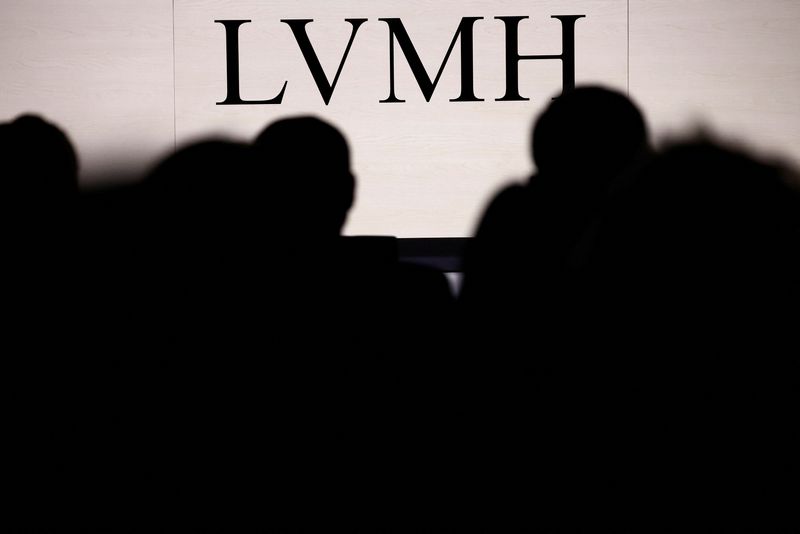By Mimosa Spencer
PARIS (Reuters) – Investors in French luxury group LVMH are watching for signs that China's new fiscal stimulus could finally pull wealthy, middle-class Chinese shoppers out of their funk and inspire them to spend $4,300 on learning ahead of Singles Day to buy designer handbags, China's biggest annual shopping spree.
Global luxury supplier LVMH, whose portfolio includes fashion and accessories from Louis Vuitton and Dior, jewelry from Tiffany & Co and cosmetics from Sephora, reports third-quarter revenue on Tuesday.
Global sales of personal luxury goods – including clothing, accessories and beauty products – will be between flat and 4% higher year-on-year this year, at constant rates, consultancy Bain has previously said. The global slowdown is most pronounced in China, as economic uncertainty weighs on middle-class shoppers and makes those who can still afford luxury wary of outward appearances.
LVMH shares, along with fellow Gucci owner Kering, Hermes and Cartier owner Richemont, have been on a rollercoaster this year. “The luxury consumer is completely shopped out,” Bank of America analysts said, citing a deterioration in sales to the Chinese, which were the main growth driver in the first half of the year.
They predict the third quarter will be the worst for the industry in four years, with organic sales down 1% year-over-year, and also cut next year's earnings per share estimates by an average of 17%.
Markus Hansen, portfolio manager at Vontobel, which owns shares of LVMH, Hermes and Richemont, said a “lack of confidence” among Chinese shoppers persists after declines in the country's property market. If confidence returns, even slightly, luxury spending in China could become “quite strong” again, Hansen said.
Analysts are confident that Chinese consumers will at some point regain their appetite for luxury fashion, with Jefferies noting that industry forecasts already predict a healthy acceleration in Chinese demand by 2025.
Redoubling its efforts to expand its market share in China, LVMH recently deepened its partnership with Alibaba to leverage the e-commerce company's cloud and artificial intelligence capabilities. DFS Group, the travel retail division of LVMH, is building a major shopping and entertainment complex on China's duty-free island of Hainan.
Luxury goods are unlikely to be the next target of China's EU trade retaliation. But luxury goods companies are staring at a possible 10% decline in their sales in China this year, compared with previous forecasts of sales growth of 5% to 6%, said Patrice Nordey, CEO of Shanghai-based innovation consultancy Trajectry. “The growth problem is everywhere: top consumers, the middle class, Gen Z, travel retail – there are too many problems for brands to solve.”
Analysts at TD Cowen on Thursday lowered their organic revenue estimates for the third quarter for LVMH and rival Kering to 2.9% and -10.4% respectively, and for Richemont's second quarter, which ended in September, to 2%.
Kering, which reports sales on October 23, gets a large portion of its annual sales from China, mainly through its powerhouse Gucci brand, with the Asia-Pacific region (excluding Japan) accounting for 35% of its sales. Gucci's recent emphasis on “timeless” styles and less on trendy new fashions may not have been effective with shoppers who need exciting looks to open their wallets, Cowen said.
(Reporting by Mimosa Spencer, Casey Hall, Elisa Anzolin; Editing by David Evans)

